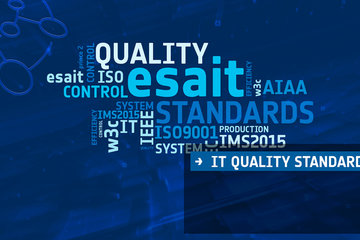We found 160 results that contain "ai"
Posted on: #iteachmsu

DISCIPLINARY CONTENT
Description is the pattern of narrative development that aims to make vivid a place, object, charact
Description is the pattern of narrative development that aims to make vivid a place, object, character, or group. Description is one of four rhetorical modes, along with exposition, argumentation, and narration. In practice it would be difficult to write literature that drew on just one of the four basic modes.
Authored by:
Description is the pattern of narrative development that ...

Posted on: #iteachmsu


Description is the pattern of narrative development that aims to make vivid a place, object, charact
Description is the pattern of narrative development that aims to ma...
Authored by:
DISCIPLINARY CONTENT
Monday, Sep 14, 2020
Posted on: #iteachmsu

ASSESSING LEARNING
University Afferins
Description is the pattern of narrative development that aims to make vivid a place, object, character, or group. Description is one of four rhetorical modes, along with exposition, argumentation, and narration. In practice it would be difficult to write literature that drew on just one of the four basic modes
Authored by:
Cramen Lawrence
Posted on: #iteachmsu

University Afferins
Description is the pattern of narrative development that aims to ma...
Authored by:
ASSESSING LEARNING
Wednesday, Sep 23, 2020
Posted on: #iteachmsu

ASSESSING LEARNING
Creation Lobi
Description is the pattern of narrative development that aims to make vivid a place, object, character, or group. Description is one of four rhetorical modes, along with exposition, argumentation, and narration. In practice it would be difficult to write literature that drew on just one of the four basic modes.
Authored by:
Macur Polon
Posted on: #iteachmsu

Creation Lobi
Description is the pattern of narrative development that aims to ma...
Authored by:
ASSESSING LEARNING
Friday, Oct 9, 2020
Posted on: #iteachmsu

ASSESSING LEARNING
Creation -AR
Description is the pattern of narrative development that aims to make vivid a place, object, character, or group. Description is one of four rhetorical modes, along with exposition, argumentation, and narration. In practice it would be difficult to write literature that drew on just one of the four basic modes.
Authored by:
Brin Thomas
Posted on: #iteachmsu

Creation -AR
Description is the pattern of narrative development that aims to ma...
Authored by:
ASSESSING LEARNING
Monday, Oct 12, 2020
Posted on: #iteachmsu

DISCIPLINARY CONTENT
PArk Meturement
Description is the pattern of narrative development that aims to make vivid a place, object, character, or group. Description is one of four rhetorical modes, along with exposition, argumentation, and narration. In practice it would be difficult to write literature that drew on just one of the four basic modes.
Authored by:
Kail Mills

Posted on: #iteachmsu


PArk Meturement
Description is the pattern of narrative development that aims to ma...
Authored by:
DISCIPLINARY CONTENT
Tuesday, Oct 13, 2020
Posted on: #iteachmsu

ASSESSING LEARNING
Creation Lorrens
Description is the pattern of narrative development that aims to make vivid a place, object, character, or group. Description is one of four rhetorical modes, along with exposition, argumentation, and narration. In practice it would be difficult to write literature that drew on just one of the four basic modes.
Authored by:
Maxwell

Posted on: #iteachmsu


Creation Lorrens
Description is the pattern of narrative development that aims to ma...
Authored by:
ASSESSING LEARNING
Thursday, Oct 15, 2020
Posted on: #iteachmsu

PEDAGOGICAL DESIGN
The most widely-used Agile methodologies include:
The main principles of the Lean methodology include:
Eliminating Waste
Amplifying Learning
Deciding as Late as Possible
Delivering as Fast as Possible
Empowering the Team
Building Integrity In
Seeing the Whole
Lean development eliminates waste by asking users to select only the truly valuable features for a system, prioritize those features, and then work to deliver them in small batches. It relies on rapid and reliable feedback between programmers and customers, emphasizing the speed and efficiency of development workflows. Lean uses the idea of a work product being “pulled” via customer request. It gives decision-making authority to individuals and small teams since this has been proven to be a faster and more efficient method than a hierarchical flow of control. Lean also concentrates on the efficient use of team resources, trying to ensure that everyone is as productive as possible for the maximum amount of time. It strongly recommends that automated unit tests be written at the same time the code is written.
Eliminating Waste
Amplifying Learning
Deciding as Late as Possible
Delivering as Fast as Possible
Empowering the Team
Building Integrity In
Seeing the Whole
Lean development eliminates waste by asking users to select only the truly valuable features for a system, prioritize those features, and then work to deliver them in small batches. It relies on rapid and reliable feedback between programmers and customers, emphasizing the speed and efficiency of development workflows. Lean uses the idea of a work product being “pulled” via customer request. It gives decision-making authority to individuals and small teams since this has been proven to be a faster and more efficient method than a hierarchical flow of control. Lean also concentrates on the efficient use of team resources, trying to ensure that everyone is as productive as possible for the maximum amount of time. It strongly recommends that automated unit tests be written at the same time the code is written.
Authored by:
Chathuri
Posted on: #iteachmsu

The most widely-used Agile methodologies include:
The main principles of the Lean methodology include:
Eliminating W...
Eliminating W...
Authored by:
PEDAGOGICAL DESIGN
Wednesday, Sep 18, 2019
Posted on: #iteachmsu

PEDAGOGICAL DESIGN
The most widely-used Agile methodologies include:2
The main principles of the Lean methodology include:
Eliminating Waste
Amplifying Learning
Deciding as Late as Possible
Delivering as Fast as Possible
Empowering the Team
Building Integrity In
Seeing the Whole
Lean development eliminates waste by asking users to select only the truly valuable features for a system, prioritize those features, and then work to deliver them in small batches. It relies on rapid and reliable feedback between programmers and customers, emphasizing the speed and efficiency of development workflows. Lean uses the idea of a work product being “pulled” via customer request. It gives decision-making authority to individuals and small teams since this has been proven to be a faster and more efficient method than a hierarchical flow of control. Lean also concentrates on the efficient use of team resources, trying to ensure that everyone is as productive as possible for the maximum amount of time. It strongly recommends that automated unit tests be written at the same time the code is written.
Eliminating Waste
Amplifying Learning
Deciding as Late as Possible
Delivering as Fast as Possible
Empowering the Team
Building Integrity In
Seeing the Whole
Lean development eliminates waste by asking users to select only the truly valuable features for a system, prioritize those features, and then work to deliver them in small batches. It relies on rapid and reliable feedback between programmers and customers, emphasizing the speed and efficiency of development workflows. Lean uses the idea of a work product being “pulled” via customer request. It gives decision-making authority to individuals and small teams since this has been proven to be a faster and more efficient method than a hierarchical flow of control. Lean also concentrates on the efficient use of team resources, trying to ensure that everyone is as productive as possible for the maximum amount of time. It strongly recommends that automated unit tests be written at the same time the code is written.
Authored by:
Chathuri
Posted on: #iteachmsu

The most widely-used Agile methodologies include:2
The main principles of the Lean methodology include:
Eliminating W...
Eliminating W...
Authored by:
PEDAGOGICAL DESIGN
Wednesday, Sep 18, 2019

